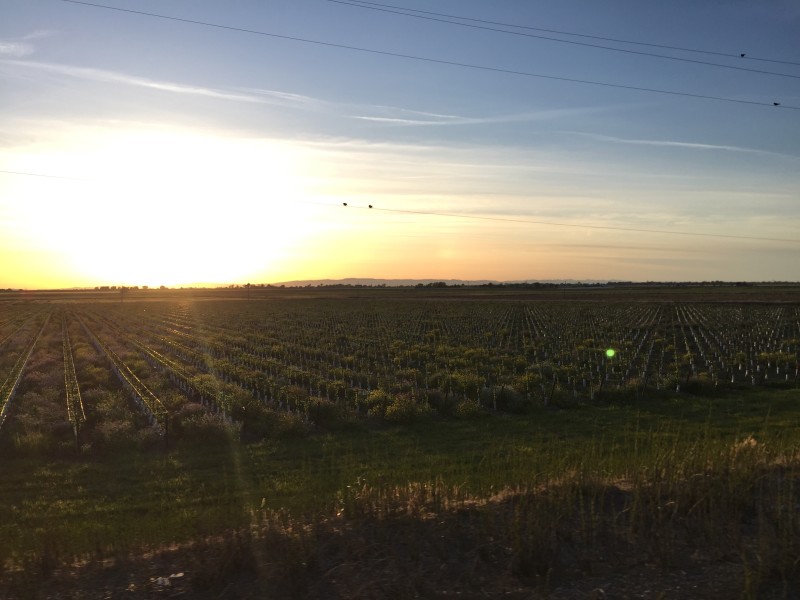California is in the fourth year of a critical drought. As the most productive agricultural region in the United States, the Californian drought has significant ramifications for food security in the country as well as nations that rely heavily on food imports. California is a major player in the global commodities market, exporting large amounts of wheat, alfalfa, nuts, fruits and vegetables to countries worldwide. For example, 84% of the global almond market originates from California.
While people may question the logic behind farming in an arid region – California is after all a desert – the Sacramento Valley has some of the most fertile and productive soil in the country. It also has the most abundant source of water. For that reason, the Sacramento Valley has been the source of water transfers in the state. When farmers have water to spare (or choose to spare), they may decide to sell water in the market, moving water to other agricultural users or cities. This drought mitigation tool can serve as a flexible management approach in an increasingly water scarce world. Several other countries have experimented with water markets, including Chile, Australia, China, and South Africa.
Michelle Valentine was a Louis Dreyfus-Weidenfeld Scholar (2014-15) studying for a MSc in Water Science, Policy and Management. In spring 2015 she visited the Sacramento Valley to interview farmers, lobbyists, non-profit organisations and academics about what drives farmers to engage in water markets. Through her research she aimed to establish a better understanding of the decision-making process behind water transfers. By establishing a deeper understanding of the supply-side issues in water markets, policy is better informed to design targeted incentive structures.
Water can be a polarising force within a community, but can, with a compassionate and inclusive management approach, become the impetus for reconciliation.



